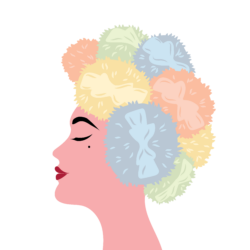
Beauty is a paradox, a silent tension between the known and the ineffable. It is a truth that hides behind a veil of perception, simultaneously obvious and elusive. When we seek beauty, we face our own limitations: wanting to hold onto something that doesn’t last and trying to define what can’t be fully explained. Beauty exists not just in what we see, but in what we feel when confronted by the unseen—a fleeting moment, a shadow of a thought, a whispered memory.
In this way, beauty defies its own nature. It is both eternal and momentary, an illusion that feels more real than reality itself. It draws us in, compelling us to search for a perfection that, deep down, we know cannot exist. Yet, in that pursuit, we find meaning, as if the act of seeking beauty is more important than finding it. It is a mirror to our desires and fears, a reflection of what we yearn for but can never fully grasp.


Thus, beauty is not just a thing to be admired; it is a riddle that challenges us to confront the paradox of our existence. It is the strange harmony between joy and sorrow, the delicate balance between what is and what might be. In this tension, beauty becomes the ultimate expression of the human condition—a contradiction that, in its complexity, reveals the profound simplicity of what it means to be alive.
